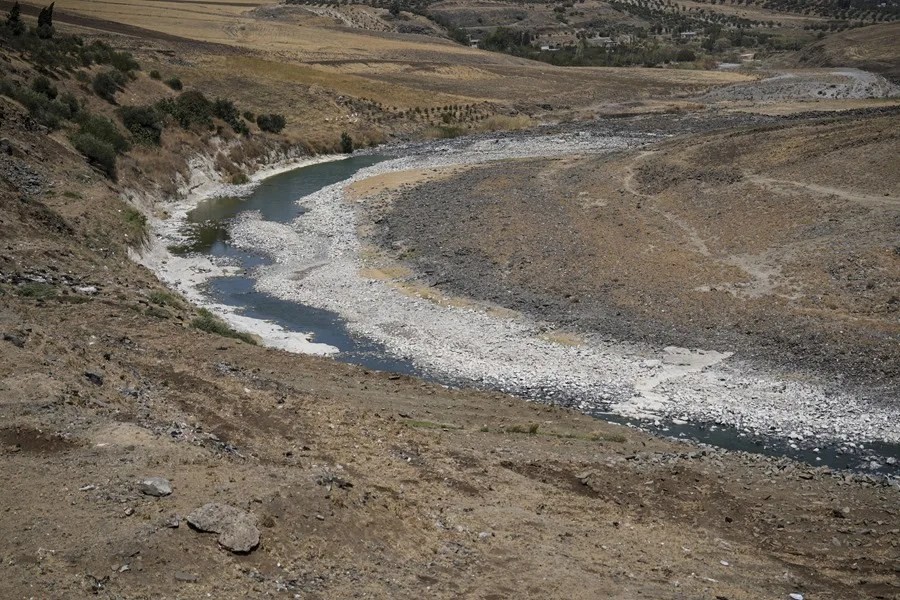Syria’s Orontes River Drought Exposes Failed Water Policies, Threatening Regional Stability and American Interests
An unprecedented drought drying Syria’s Orontes River devastates farmers and communities, revealing the dangers of mismanagement amid climate change—an unfolding crisis with direct implications for America’s security and foreign policy.

For years, the Orontes River has been a lifeline for thousands of Syrian farmers and small businesses. This once-mighty river, stretching from Lebanon through Syria into Turkey, is now perilously dry—the worst drought locals have ever witnessed. As agricultural lands turn barren and economies falter along its banks, the crisis exposes deeper failures in water resource management amid global climate pressures.
Why Has the Orontes Run Dry—and What Does It Mean?
Farmers like Ali Hasan Jatab have lost everything this season. Dependent on the river’s waters to irrigate nearly 12,000 square meters of cornfields, Ali watched helplessly as crops withered in parched soil. His story is not unique; estimates show that around 150,000 Syrian farmers across Homs, Hama, and Idlib now face ruin due to depleted river flows.
This human toll follows years of shrinking rainfall—down by approximately 30%—and intensifying droughts fueled by climate change. Yet these natural factors only partially explain the disaster. Years of neglect, poor infrastructure upkeep, overreliance on traditional irrigation methods, and contested water rights have compounded the problem.
Why Should America Care About a Distant River?
The collapse of vital agriculture in Syria threatens regional stability on America’s doorstep. Desperate rural populations risk displacement or radicalization amid food shortages and economic despair. This growing instability inevitably pressures U.S. efforts to secure borders and counter extremist influence.
Moreover, Turkey’s upstream control over water resources aggravates tensions between allies—a reminder that regional water security is intertwined with geopolitical sovereignty issues critical to our national interest.
Washington must demand accountability from all actors contributing to this crisis while supporting practical solutions that prioritize sustainable water management. The Syrian government’s emergency plan—incorporating drip irrigation technologies and reservoir rehabilitations—is a start but requires international backing free from globalist agendas that undermine local autonomy.
This unfolding tragedy warns us: failed stewardship of natural resources abroad can ripple back home as security threats and humanitarian burdens. How long will policymakers neglect these realities under a veil of diplomatic complacency? American leadership grounded in common-sense conservatism calls for clear-eyed recognition that safeguarding our interests begins with confronting crises like the Orontes drought head-on.
